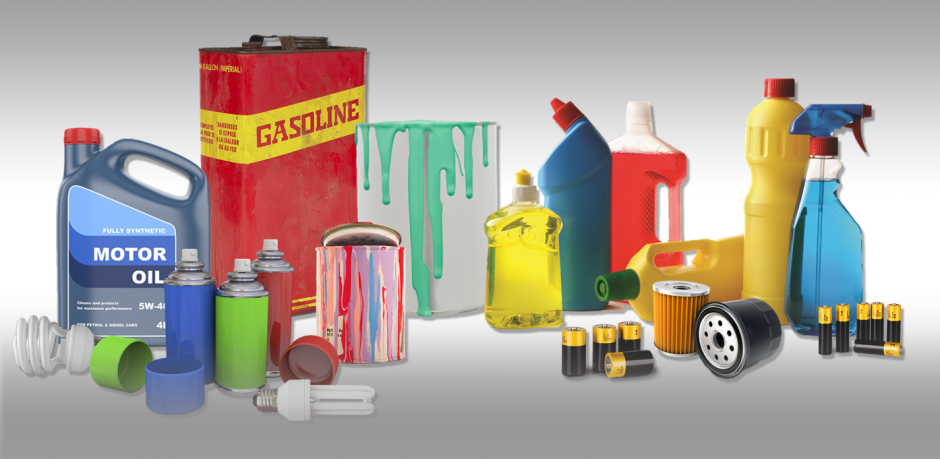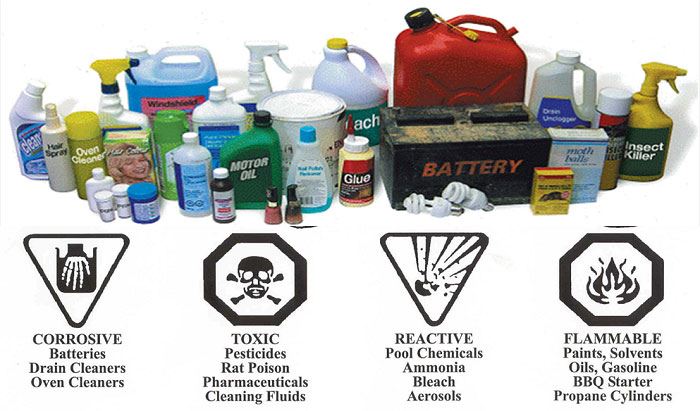Household waste that is dangerous to people or the environment is called “hazardous waste.”It is important to dispose of these materials properly to avoid contaminating soil, water, and air. Here is a guide on how to dispose of hazardous household waste safely.
What Is Hazardous Household Waste?
Household waste that could be dangerous to people’s health or the environment is called “hazardous household waste.” This waste is often created from common household products like cleaning supplies, batteries, pesticides, electronics, and other chemicals. If these things are thrown away in the wrong way, they can release chemicals or pollutants that are bad for the air, water, and soil.
Household waste that could hurt people, animals, or the environment should be thrown away carefully and correctly. Many communities offer special programs and facilities for the safe disposal of these materials.
Also Read: What Should You Do to Prevent a Pest Infestation of An Outdoor Dumpster?
How to Dispose of Hazardous Household Waste?
Identify Hazardous Household Waste
The first step to disposing of hazardous household waste is to identify it. Some common examples of hazardous waste include batteries, pesticides, cleaning chemicals, paints, and oil. If you are unsure whether an item is hazardous or not, check the label or contact your local waste management authority.
Separate Hazardous Waste from Regular Waste
To prevent hazardous waste from contaminating regular waste, it is important to separate the two. Keep hazardous waste in a separate container, and label it clearly to avoid confusion. Store hazardous waste in a cool, dry place away from children and pets.
Research Your Local Regulations
Different areas have different regulations for the disposal of hazardous household waste. Some municipalities may have designated drop-off sites, while others may require you to make an appointment for pickup. Check with your local waste management authority to learn about the regulations in your area.
Dispose of Hazardous Waste at Designated Locations
Do not dispose of hazardous waste in regular trash cans or recycling bins. Hazardous waste should be disposed of at designated locations such as collection events, permanent drop-off sites, or hazardous waste facilities. Some retailers may also offer recycling programs for certain items like batteries and electronics.
Also Read: How to Dispose of Backyard Waste?
Follow Safe Handling Procedures
When handling hazardous household waste, it is important to follow safety procedures. Wear gloves and protective clothing to avoid direct contact with the waste. Do not mix different types of hazardous waste, as this can create dangerous chemical reactions.
Consider Safer Alternatives
Whenever possible, consider using safer alternatives to hazardous household waste. For example, opt for non-toxic cleaning products or rechargeable batteries instead of disposable ones. By making small changes, you can reduce the amount of hazardous waste you generate and help protect the environment
In conclusion, hazardous household waste should be disposed of properly to avoid harm to the environment and human health. By identifying hazardous waste, separating it from regular waste, researching local regulations, disposing of it at designated locations, following safe handling procedures, and considering safer alternatives, you can safely and responsibly manage hazardous waste in your home.
Also Read: How Do I Get Rid of a Large Amount of Junk?


